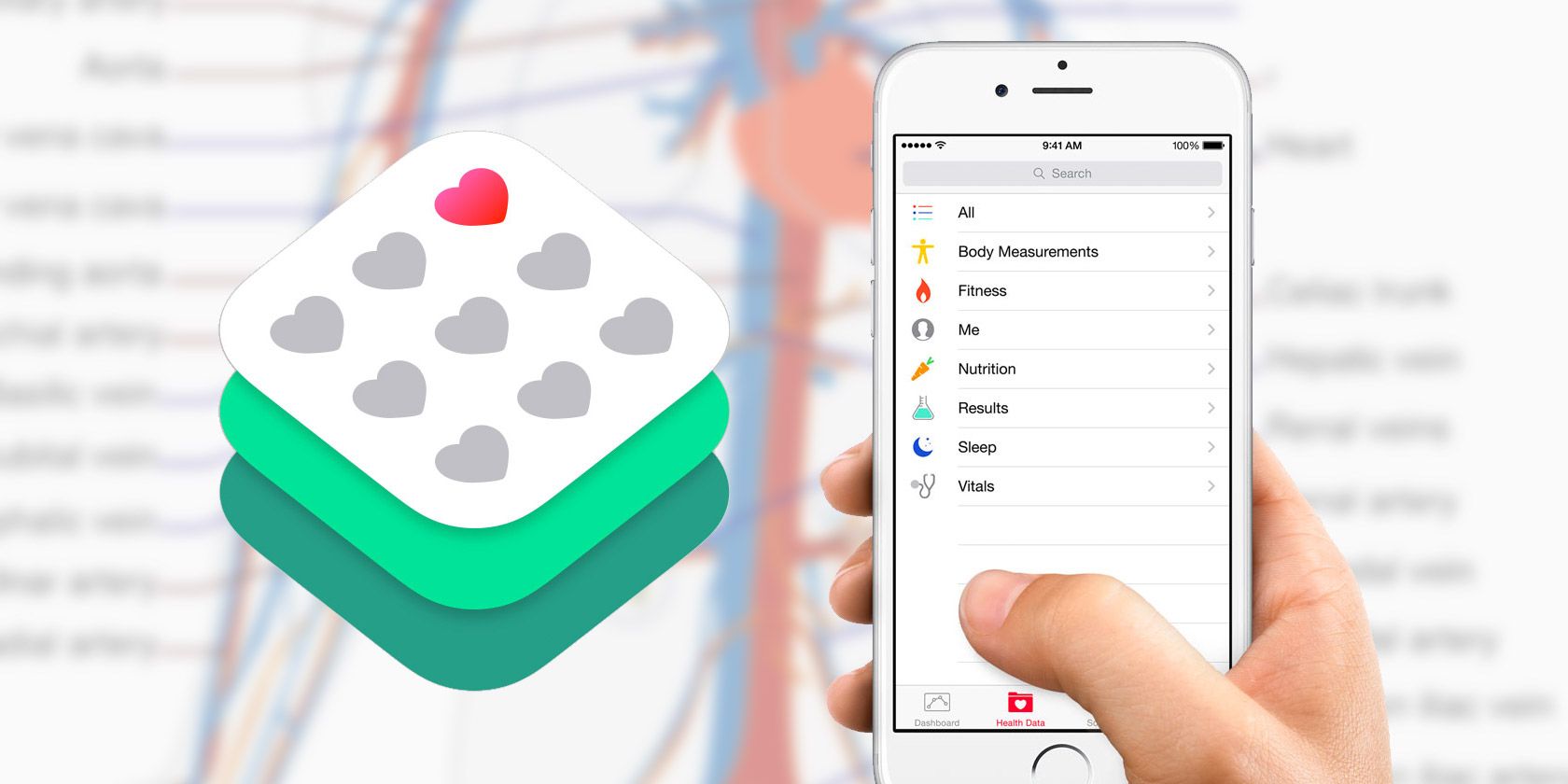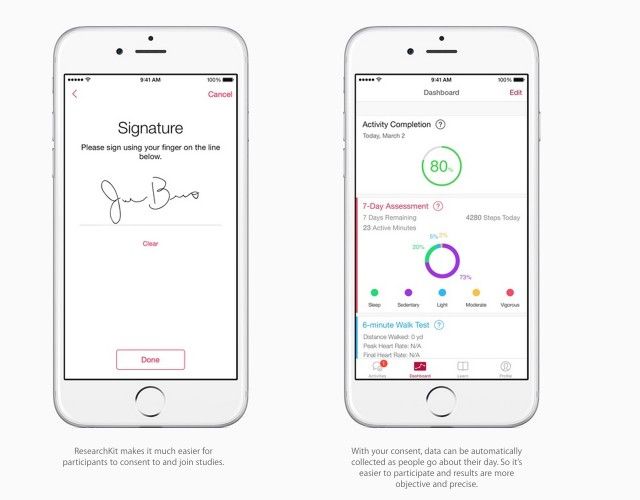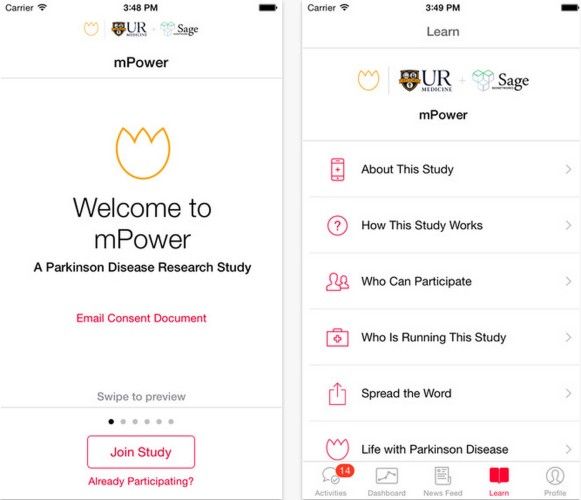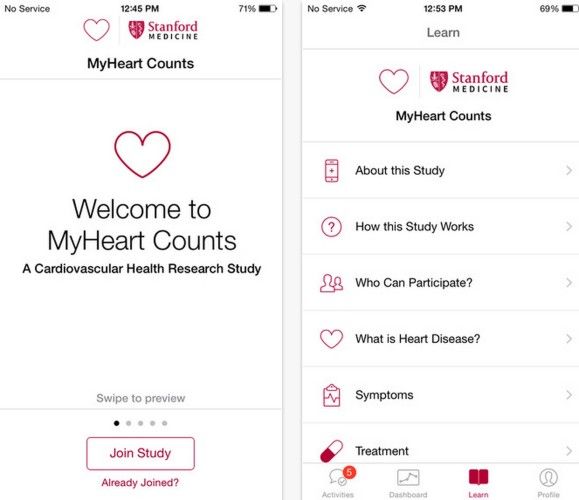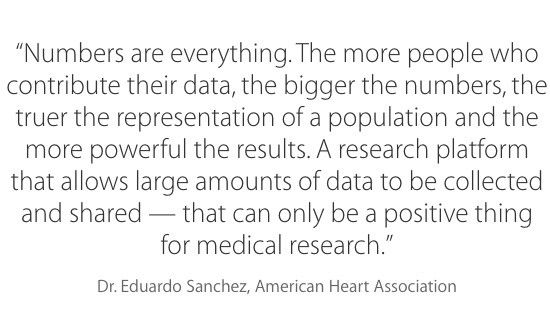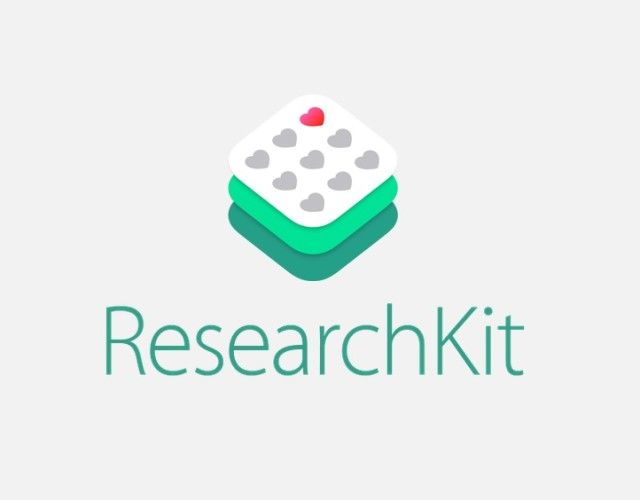The introduction of HealthKit with iOS 8 marked a turning point in how we think about our day-to-day health. Now, your iPhone can function accurately and consistently as a way to track important stats, monitor health conditions, and encourage you to maintain a healthy lifestyle.
All of this data is collected by various apps and then consolidated into your personal HealthKit database, where it can be accessed by other apps or interpreted by your healthcare professional.
Researchers have long been searching for the perfect way to track the health statistics of a wide variety of participants using standardized measures in order to improve the quality of their data and the widespread applicability of their findings.
Your iPhone may be the solution researchers have been looking for.
What is ResearchKit?
https://images.apple.com/media/ca/researchkit/2015/468e0650_d567_4295_af63_911bc296c110/tours/researchkit-film/researchkit-film-ca-20150323_848x480.mp4
Everything that makes your iPhone or iPad perfect for tracking your own health also makes it an incredibly valuable resource for medical research.
ResearchKit is an open-source framework created by Apple that allows universities, hospitals and research firms to design apps that can access HealthKit's information. These apps can then be used as a method of gathering data for medical studies focused on describing symptoms, following a condition's trajectory, discovering previously unknown risk factors, and more.
Why is ResearchKit needed?
There are a lot of issues with how current medical studies work.
All good researchers are aware of the flaws that are inherent to the modern research process. Some of threse include small sample sizes, a lack of participant diversity, financial constraints, the complications of trying to have regular assessments with participants over a long-term study, and limited access to the devices needed for data collection.
The thing is, up until now there hasn't really been a good way for researchers to work around these constraints.
The framework that ResearchKit offers is giving researchers the opportunity to collect unbiased data from a potentially enormous population of iPhone users, and is offering them access to statistics (such as participants' daily activity level) that they otherwise would be unable to measure (or measure accurately) within the scope of their study.
How Does ResearchKit Work?
Essentially, researchers from universities and hospitals partner with developers to create an app that uses ResearchKit's framework. These apps integrate with HealthKit so that they can access all of the stats collected by participants' iPhones, iPads, and other iOS-compatible health accessories.
People who are interested in participating in a study download the appropriate app, sign a consent form, and complete activities (such as following a tapping pattern on the screen, or responding to survey questions) that measure the variables researchers are interested in. The app will likely also ask for permission to access the data collected by HealthKit so that researchers have a more holistic view of a participant's health.
The data from all participants is then combined, examined, and reported just like it would be in any other study.
What are the top apps using ResearchKit?
ResearchKit is already being used by several major organizations and research hospitals to gather information about Parkinson's disease, Breast Cancer, and Cardiovascular disease.
mPower — Studying the Trajectory of Parkinson's Disease [No Longer Available]
The mPower app was developed by Sage Bionetworks and the University of Rochester and is intended to function both as a research app and as a personal tool for those living with Parkinson's disease.
The app tracks symptoms of Parkinson's through activities such as finger tapping, voice recording, walking, and a memory game. An individual's performance on these tasks can be shared with their physician to measure their own disease trajectory, and is also combined with results from other people who have Parkinson's and healthy controls for research purposes.
Parkinson's disease is a difficult disease to study, especially because an individual's disease trajectory can be incredibly unique. It is the hope of these researchers that this large-scale study will make it one of the most comprehensive studies done on Parkinson's symptoms to date.
myHeart Counts — Improving our Understanding of Heart Health
Stanford University developed the myHeart Counts app in an effort to help individuals monitor their individual heart health, while also creating a resource for researchers interested in what lifestyle behaviours are most effective at maintaining cardiovascular health.
Participants in this study are asked to complete a six minute walk test, their on-going physical activity, and to answer questions that will allow the app to calculate a "risk score" for heart disease or stroke.
While this app's primary focus may be to collect data for Stanford's study, they have also included plenty of information about heart disease and how to limit risk factors in your daily life. This, along with its ability to track health statistics on an individual basis, and tracking that encourages users to walk more to improve their health, make it an excellent resource for those who want to actively prevent risk factors of cardiovascular disease in their lives.
What are the Benefits of ResearchKit?
There are a lot of potential benefits to this kind of centralized, standardized, electronic research process. Automatic tracking on iOS devices makes it hard for people to misrepresent their measurements, and using our smartphones researchers can reach a much larger population of participants that could potentially not be accessed otherwise.
Another great thing about ResearchKit is that it is open source (and therefore non-proprietary). Apple does not own any of the data that is collected — instead, it just offers the platform as a jumping off point for those running the studies. The format offered by ResearchKit also ensures that researchers can spend less time and funds on paperwork and data collection.
Finally, there is a lot to be said for the quality of research offered by ResearchKit.
Many studies struggle with the fact that information gathered in a lab setting may not translate well to real life. ResearchKit allows information to be collected in an organic setting, and so gives researchers the best picture of how participants are actually doing in their day-to-day lives and helps to make the applications of their research more valid.
Are There Downsides to ResearchKit?
All that being said, there are some downsides to ResearchKit as well.
One of the most glaring issues is that there can be no observation/supervision from researchers in a study run through ResearchKit. While researchers can try to make their apps as intuitive and instructive as possible, there's no way to guarantee that participants are inputting information correctly or fully understanding the questions like there would be in a face-to-face study.
There are several other legitimate concerns when it comes to the security of your information. While Apple states in its terms and conditions that your information cannot be shared to a third party, privacy advocacy and legislation has not yet evolved to include research conducted through platforms like ResearchKit and you are not protected by federal medical privacy laws like you are when you share information with your doctor.
A final concern about research collected through ResearchKit is that while iOS devices do give researchers access to a larger population of participants, it may not be offering them the diverse populations that they are looking for. iPhones and iPads (as well as most HealthKit accessories) do not come cheap, meaning that ResearchKit really doesn't allow increased access to participants who may come from a lower socioeconomic status.
Do Your Research
While there are some legitimate concerns about ResearchKit, it's important to remember that this platform is still in its infancy.
Many facets of our society have evolved with widespread access to technology, so it makes sense that medical research should be evolving in the same way. Health conditions are incredibly difficult to study in-lab because of the individual nature of their effects, the often small populations of individuals in a local area who have a specific condition or symptom, and because of the expenses that come with monitoring technology.
ResearchKit certainly seems to be representative of the changing face of medical research, and may prove to be absolutely invaluable in how we learn about health and medicine, especially as Apple's health and wellness apps continue to become more exact and intuitive.
Have you signed up for a ResearchKit study? Do you have any concerns about a research process that involves this kind of information collection?

